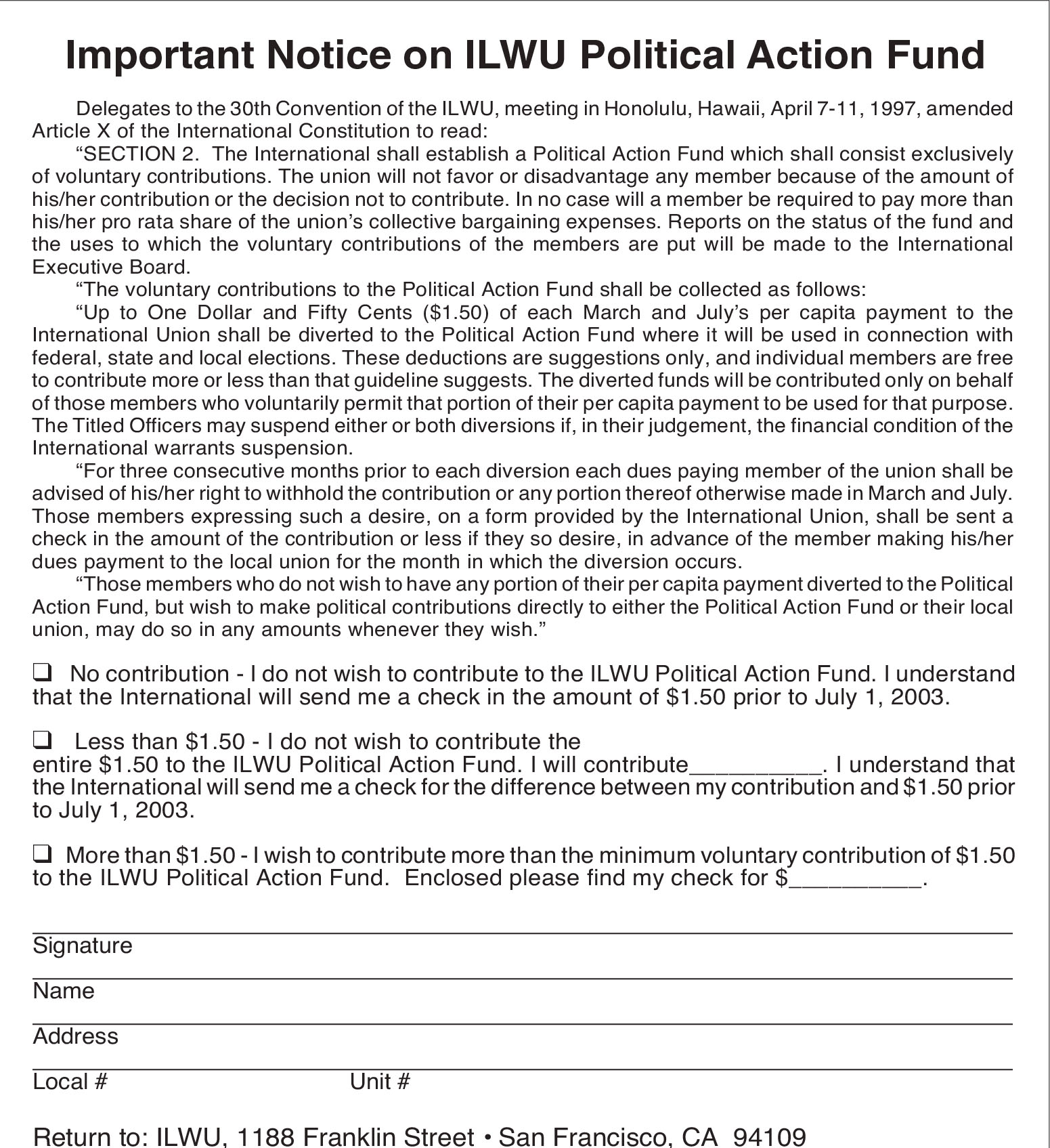Millions of retirees are forced to choose between paying for food and paying for soaring costs of prescription drugs. This week, the Senate will be debating a bill that could make matters even worse for millions of retirees.
Rather than passing a real Medicare prescription drug bill to provide real relief for America’s seniors, Senator Chuck Grassley (R-IA) and Sen. Max Baucus (D-MT) are pushing a sham prescription drug bill that could lead employers to drop existing retiree prescription drug coverage. The Congressional Budget Office estimates that the prescription drug bill could leave as many as 4.4 million retirees without employer-sponsored prescription drug coverage.
The House of Representatives is feverishly working on legislation that is even worse for seniors.
Employee-sponsored retiree health benefits are the single greatest source of coverage for retirees, providing drug coverage for one in three Medicare beneficiaries.
Retiree coverage is declining dramatically. Just 34% of all large firms offered retiree benefits in 2002, down from 68% of all large firms in 1988.
Drug costs constitute 40 to 60 % of employer’s retiree health care costs, and steep price increases are prompting employers to eliminate drug benefits, cap their contributions or drop retiree coverage altogether.
Employers need immediate relief for their retiree prescription drug costs, yet the Republican proposals in 2002 would have only exacerbated the current downward trend in retiree benefits.
The GOP proposals in 2002 would discriminate against Medicare beneficiaries with employer-provided coverage. With a trick definition of out of pocket costs, known as “true out of pocket costs, “the Republican plan would not allow any spending
by employers to count towards meeting the various spending levels in the GOP plan.
Congress must enact a drug benefit that recognizes employers that are doing the right thing. To do otherwise will further threaten retiree coverage and will drive millions more seniors to Medicare for the coverage they used to get from employers.
What a Medicare prescription drug benefit should and should not be
A Medicare drug benefit should be adequately financed, comprehensive in coverage and affordable and voluntary for all Medicare beneficiaries. Aggressive initiatives designed to rein in the cost of medications for all Americans is critical to the
success of any program.
A meaningful prescription drug must provide comprehensive, continuous and certain coverage.
A prescription drug benefit must be provided through the Medicare program as any other Medicare benefit is provided.
Rising prescription drug prices threaten not only a Medicare drug benefit, but all health care coverage.
A benefit must be affordable for beneficiaries, with a low premium and coverage of the vast majority of drug costs.
Retirees that currently have adequate coverage should not be placed at risk of losing good benefits.
A Medicare drug benefit should not be held hostage to force radical privatization proposals that would cut benefits and increase cost for retirees.
President Bush has a proposal that is at odds with principles acceptable to the labor community as a whole and the ILWU specifically. There are four basic issues with the Republican plan:
- Despite the promises made to provide assistance to all Medicare beneficiaries, many millions will not get help with their drug costs under the President’s plan.
- Seniors will have to leave the doctor they choose to get the drugs they need.
- Bush’s plan holds a drug benefit hostage to privatizing Medicare.
- Despite the deceptive claim that seniors will have choices just like Federal employees, no senior will get even close to benefits that Members of Congress get today.

Espeleta and Kaniho fill vacancies
Members will see a number of new faces among their servicing business agents. On the Big Island, Richard Kaniho will be replacing Gary Duguran as a temporary business agent. Kaniho is from Unit 1516 - Mauna Lani Bay Hotel, where he also served as unit chair. Duguran is from Unit 1401 - MLP Ka‘u Orchard.
On Maui, Teddy Espeleta, from Unit 2307 - Maui Land and Pineapple Company, will fill the vacancy created when elected business agent Virgilio Viernes was tragically killed in an auto accident while on vacation in the Philippines. Viernes was
originally from Unit 2101 - HC&S.
The ILWU constitution allows the titled officers (president, vice-president, and secretary-treasurer) to appoint a member to fill a vacancy in an elected position, with the approval of the Division Executive Board where the vacancy occurs.
Both appointments are temporary until the positions are filled through the union’s regular elections which are scheduled for this November 2003. All newly elected business agents would then take office on January 2, 2004, and serve a three-year term until January 1, 2007. The ILWU has 21 elected business agents.

Teddy Espeleta
Maui Division

Richard Kaniho
Hawaii Division
